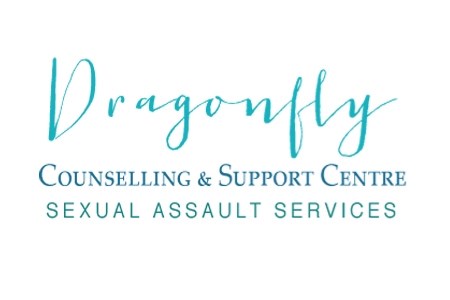Staff at the Dragonfly Counselling and Support Centre (DCSC) have reached out to sexual assault victims in light of recent high profile sexual assault cases.
Staff at the Dragonfly Counselling and Support Centre (DCSC) have reached out to sexual assault victims in light of recent high profile sexual assault cases.
The DCSC, with the Association of Alberta Sexual Assault Services (AASAS), and sexual assault centres across Alberta, reached out to all survivors of sexual assault and encouraging them to come forward. They want to change the stat that 97 per cent of sexual assaults go unreported in Canada.
DCSC Executive Director Cheryl Bujold expressed concerns that sexual assault trials widely covered by the media, like the trial of former 'Q' radio host Jian Ghomeshi, can hold triggers for victims of sexual assault. Ghomeshi was tried on March 24 after three women filed sexual harassment complaints against him. The trial process has been widely covered by the media since the CBC cut ties with Ghomeshi due to the sexual allegations against him in late October 2015.
After Ghomeshi was found not guilty of all charges of sexual assault, Bujold believes victims may find it even harder to come forward. A high profile sexual assault trial that does not result in criminal charges against the accused can be deterring to silent survivors of sexual assault, who might see their trials mirrored in the publicized case.
"The trial raises the question of if our judiciary system understands victim behaviours," said Bujold, explaining victim reports can be easily confused depending on the trauma of the event.
"The burden of proof is so extremely high in our justice system, the crown has to prove the guilt," said Bujold, pressing that a not guilty verdict doesn't translate there was no guilt or the assaults didn't happen, just there was no evidence to press beyond reasonable doubt.
It takes courage for sexual assault survivors to file formal reports with the police. Out of every 1,000 sexual assaults in Canada, 997 assailants walk free because they aren't reported. Only seven per cent of sexual assaults are reported to formal agencies. Of the 1,000 sexual assaults that occur, 33 cases are reported to police and 29 are reported as a crime. Twelve of those reported crimes have charges laid, then six are prosecuted and three lead to conviction.
Championing 'we believe', the AASAS relates an understanding that it is not easy for the public to understand the behaviours of sexual assault survivors but that the best response towards someone relating a traumatic event is to show support.
"As helpers, friends and family of someone who has experienced sexual assault or sexual abuse, remember the power of 'I believe you'," said CEO for AASAS Debra Tomlinson in a statement.
Society has to stop focusing on the behaviours of victims and turn its attention to holding perpetrators accountable for the crimes they commit.
"It's pivotal that [the victim's] first interaction is a positive and affirming one," said Bujold. "To say, 'it is the truth', to hear that positive statement, it really goes a long way to helping their journey to healing."
Much of the evidence against an accused assailant falls to the credibility and consistency of the victims' stories, as seen in the Ghomeshi trial.
"Sexual assault trauma is a highly complex phenomena," said Tomlinson.
She explained people impacted by trauma can respond and behave differently from what one might expect, and that there is no right or wrong response.
After the initial report of a crime, victims also have to proceed though the criminal justice system which can be a long and trying process.
Bujold notes the majority of assaults are committed by someone the victim knows, making it even more challenging for them to come forward. These circumstances, along with societal stigma around sexual assault, lead to uncertainty when facing the justice system.
Bujold suggests training members of the court system and process could lead to a better understanding of victim response through trauma and a more concrete prosecution system.
"In reflection of this verdict, we would all like to see our judiciary get the training they need for trauma," said Bujold,adding that she admires the survivors of the Ghomeshi case.
"Their willingness to come forward has opened up the ability for us to have a conversation at our kitchen tables about sexual assault and sexual abuse."
For Bujold, extensive coverage of sexual assault trials brings the conversation of sexual assault home. She wants open conversations about sexual assault to happen over coffee, at the dinner table, and wherever else they might be needed because sexual assault can happen to anyone.
Forty per cent of sexual assault survivors with DCSC are children. One in three women, and one in six men, will experience a sexual assault in their lifetimes.
If nothing else, Bujold looks at the trial as an opportunity for change, to look at the way society is looking at sexual consent and the context of relationships.
The DCSC serves 22 communities across the region. All of their services are free and confidential serving and supporting those as young as four-years-old.
